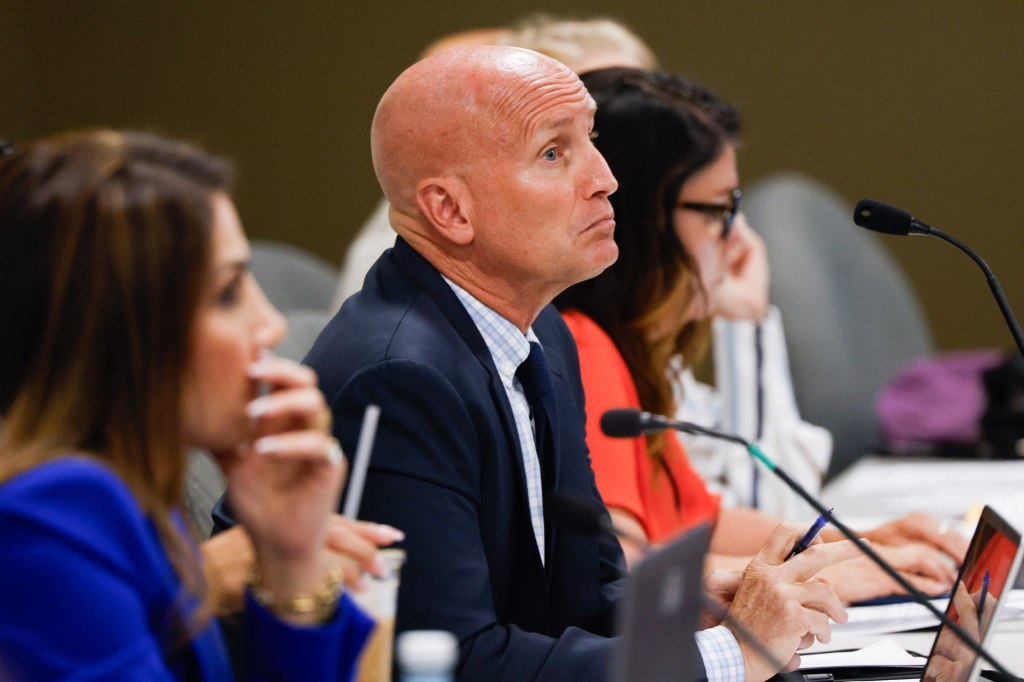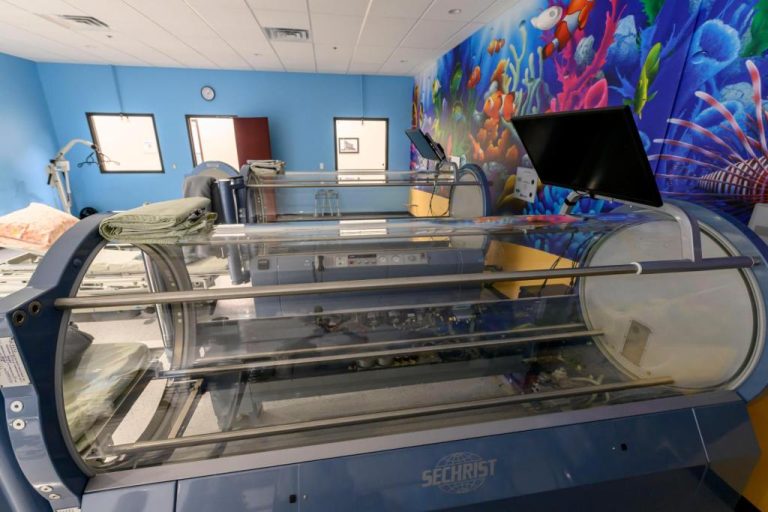
The San Diego County sheriff is being accused of slow-walking and ignoring data requests from a team of experts hired to examine why so many people die in local jails, an issue that has cost taxpayers nearly $20 million in legal settlements this year alone.
The allegation is the latest in a string of recent disputes between the region’s largest law enforcement agency and the civilian office charged with monitoring its practices.
According to a letter to be discussed at the Tuesday meeting of the Citizens’ Law Enforcement Review Board, the Sheriff’s Office has not been cooperating with a team of data scientists hired two years ago to research in-custody deaths.
The two-page correspondence from the civilian oversight panel known as CLERB pleads with Sheriff Kelly A. Martinez to “immediately cooperate” with researchers from the Mountain-Whisper-Light consulting group and turn over the information they need to finish their study.
CLERB Chair MaryAnne Pintar said the board hired the company in May 2022 to provide data-driven recommendations aimed at reducing jail deaths, and the firm promptly contacted the Sheriff’s Office for help obtaining key records and data.
But Sheriff’s Office staff told the researchers to submit a request under the California Public Records Act. The researchers filed formal requests for records, but the sheriff withheld many of the documents under various exemptions in the state law.
“What has followed has been a protracted and frustrating attempt to acquire the needed data from the Sheriff’s Office, which to date has been largely unsuccessful,” Pintar wrote to Martinez.
“Despite numerous (California Public Records Act) requests submitted by TMWL, the data has not been fully provided, with multiple requests denied or delayed,” she added. “Many of the reasons documents were denied are spurious, or reflect the Sheriff’s Office asserting CPRA exemptions it could choose to waive.”
The lack of cooperation has not only delayed the $118,000 study, it has also forced CLERB to spend more than $14,000 on a lawyer to defend the public-records requests, Pintar said.
A sheriff’s spokesperson said Martinez is committed to civilian oversight of her department and to preventing in-custody deaths, which have been a recurring problem in San Diego County jails for years.
Kimberly King said the sheriff must balance cooperation with the CLERB consultants with her obligation to protect sensitive information, maintain jail security and uphold individual privacy rights.
“The data being requested often involves confidential, legally protected information, which cannot be disclosed without proper procedural safeguards,” she said by email. “Compliance with these safeguards is crucial for protecting privacy rights and maintaining public trust.”
King also said the review board has no specific authority under the county charter and administrative code to conduct such a study. She said the study now under way does not fall within CLERB’s limited jurisdiction and responsibilities.
“Still, our office has been working with CLERB and their contractor to provide legally appropriate information,” she said.
CLERB Executive Officer Brett Kalina said the consultants were willing to sign a nondisclosure agreement to protect the confidentiality of any of the records but the Sheriff’s Office “claimed it would not be needed.”
“We would have gladly cooperated with the Sheriff’s Office and signed contracts that safeguarded the information as we originally discussed,” Kalina told The San Diego Union-Tribune.
Kalina pointed out that CLERB, which relies on Sheriff’s Office records to conduct its own reviews of in-custody deaths, already follows strict confidentiality rules.
And other county agencies provided information to the researchers without requiring a public-records request, he said. “The information provided by those agencies is no less sensitive than the information requested from SDSO,” Kalina said.
One exemption the Sheriff’s Office has cited frequently in its responses to the consultants’ requests prohibits the release of “criminal offender record information.” But Kalina said the law makes an exception for public agencies and research institutions whose work focuses on improving the criminal justice system.

The review board hired the data-science analysts weeks after another consultant completed a study of in-custody deaths in April 2022.
Analytica Consulting found that San Diego County jails had “the highest number of unexplained deaths and highest number of overdose/accidental deaths of any California county,” Pintar wrote in her letter to the sheriff.
The Analytica researchers also noted a high risk of suicide among people detained in local jails and recommended a follow-up analysis to examine specific data sets.
“The study concluded public oversight of in-custody deaths lacks key information, and identified 15 areas for future study, including the impacts of mental illness, staffing levels, charging decisions, race, gender, age and homelessness,” the CLERB chair wrote.
King, the sheriff’s spokesperson, said much of the requested information is confidential.
“The Sheriff’s Office has not withheld data indiscriminately; on the contrary, each California Public Records Act request has been evaluated carefully,” King said by email. “In cases where information was withheld, these decisions were based on legally identified exemptions.”
Kalina said CLERB’s lawyer sent the Sheriff’s Office a letter in August, challenging its reasons for withholding records, but has not received a response. The lack of any reply is what prompted Pintar’s letter to Sheriff Martinez.
“CLERB welcomes the opportunity to have an open discussion on obtaining the data needed for the study,” Kalina said.
The dispute over jail records is not the only difference of opinion between the Sheriff’s Office and the civilian body charged with its oversight.

Since Martinez was sworn in as San Diego County sheriff early last year, she has repeatedly rejected a recommendation from CLERB to body-scan everyone entering jail as a way to keep drugs out. In July, she instead agreed to conduct random screenings using metal detectors and drug sniffing dogs, rather than the more thorough scans used to examine people being booked into custody that can see foreign objects internally.
The sheriff has also insisted that the review board has no jurisdiction over the office itself, only the sworn deputies on her staff, and has resisted releasing documents related to internal investigations into jail deaths, as CLERB has recommended.
As a candidate, Martinez promised to make public reports by the sheriff’s Critical Incident Review Board, but she instead has been releasing only brief summaries of the internal investigations. CLERB’s then-executive officer Paul Parker told her in a letter last year that her decision would “clearly result in less comprehensive and less transparent publicly accessible information.”
More than 240 people have died in county custody since 2006, department records and a 2022 state audit show.
In July, the Board of Supervisors agreed to a $15 million settlement with the family of Elisa Serna, who died in jail after deputies and medical staff failed to properly treat her alcohol- and drug-withdrawal symptoms.
Late last month, the county agreed to pay almost $5 million to the family of Michael Wilson, who died in sheriff’s custody after staff failed to give him the prescription heart medication he needed to live.
Other negligence and misconduct alleged against Sheriff’s Office employees and jail medical staff has cost San Diego County taxpayers more than $70 million in settlements and jury awards over the past six years.
Additional pending litigation is likely to cost taxpayers millions more.
Originally Published:





